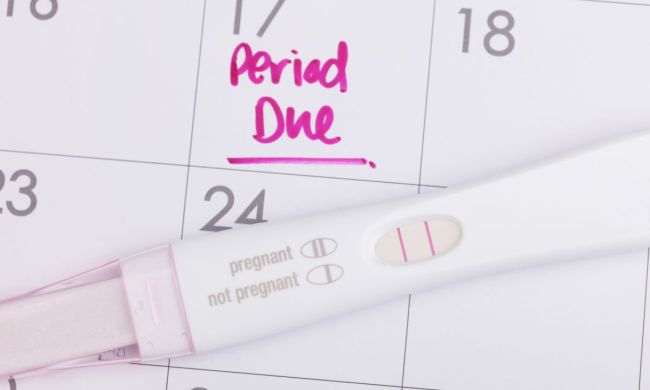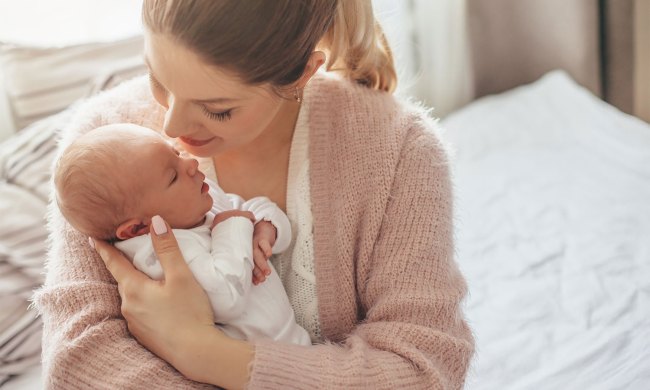
Weight gain is a very real, very normal, and very expected part of pregnancy. Most people are prepared to see the scale going up as their pregnancy progresses, but sometimes they may notice it going down, which can cause some anxiety. Pregnancy requires extra calories and extra nutrition to feed a growing baby, which is why it can be very concerning when a pregnant person notices they are losing weight.
Weight loss during pregnancy may be more common than you think. It isn’t necessarily cause for alarm unless it’s a consistent pattern throughout the pregnancy and not just a short-lived dip on the scale. Many factors can cause a pregnant person to lose weight, but that doesn’t mean it can’t be concerning when it happens. You should always consult your doctor if you’re concerned about your weight gain or loss during pregnancy, but if you’ve found yourself asking, “Why am I losing weight while pregnant?” here are a few possible explanations.
It’s not uncommon

Believe it or not, losing weight during pregnancy isn’t uncommon, especially during the first trimester. Morning sickness can be one of the biggest causes of weight loss during the first trimester when some women are too nauseous to eat or are vomiting frequently.
Pregnancy can inspire a healthier lifestyle, which can also result in some early-stage weight loss, especially if a woman begins a moderate exercise program and really focuses on their nutrition compared to their pre-pregnancy lifestyle. Losing weight during the first trimester usually isn’t anything to worry about, especially if it’s followed by the recommended weight gain.
When should I worry about weight loss during pregnancy?
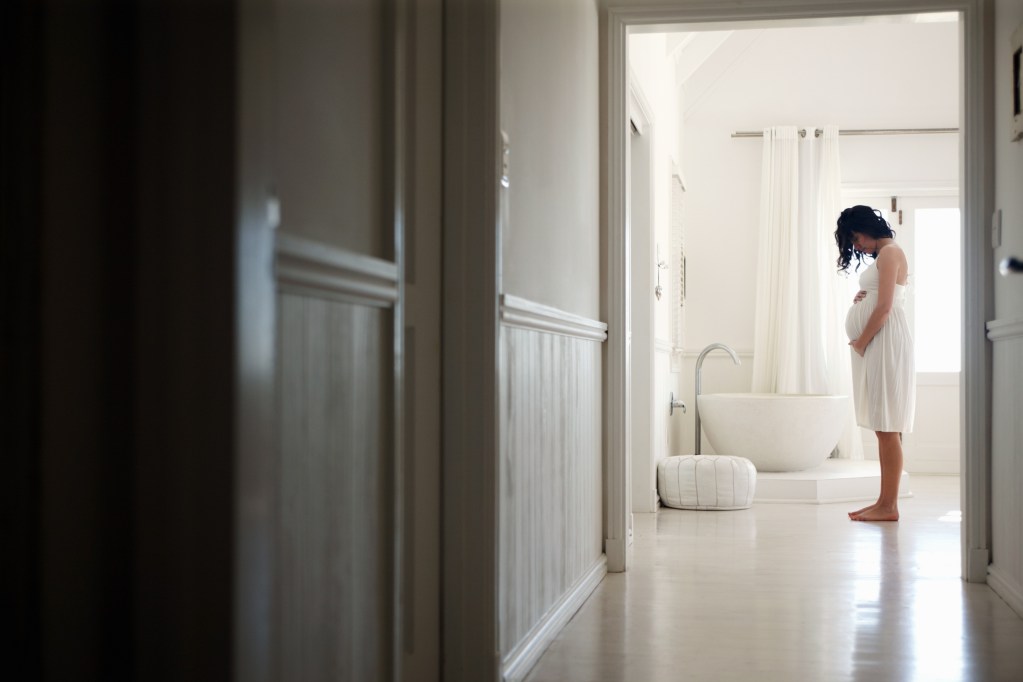
Although losing a bit of weight early in your pregnancy may not be something to worry about, there are times when it can be cause for alarm. Severe morning sickness, clinically known as hyperemesis gravidarum, can cause harm to both the mother and the baby if not treated. According to BabyCenter, hyperemesis gravidarum is characterized by “persistent nausea, vomiting several times a day, weight loss, dehydration, reduced appetite, and fainting.” This can cause not only weight loss in the expectant mother but also harm to the baby. If you feel you’re losing weight because of severe morning sickness, you should speak to your doctor immediately because you may require medical intervention.
Kimberly Henderson, DO, an OB-GYN at Health Quest Medical Practice, told The Bump that pregnancy weight loss is “only a cause for concern if pregnancy weight loss hits 5% and 10% of a woman’s total body weight.” Pooja Shah, MD, an OB-GYN and regional medical director for Banner Medical Group AZ East, explained to the website that weight loss during the third trimester could be a problem and should be brought to your doctor’s attention.
Although it may be due to simple fluctuations, it could also be related to low amniotic fluid or pregnancy-induced hypertension or preeclampsia. Since babies see their most growth during the third trimester, most women also see an increase in their weight gain during that time. If you’re losing weight in your third trimester, don’t ignore it and speak to your medical provider. You should also contact your doctor if you are experiencing any sudden, dramatic weight loss at any time.
Why did I get skinny while pregnant?

Weight gain is a part of pregnancy, so while some weight loss may be normal and no cause for concern, it shouldn’t be the goal, either. That being said, some women do find a renewed commitment to their health once they find out they are pregnant and this healthier lifestyle can lead to some initial weight loss. Women who are heavier before getting pregnant or have a BMI over 30 may also tend to lose a bit of weight at the beginning of their pregnancy, which may be beneficial.
Causes of weight loss during pregnancy
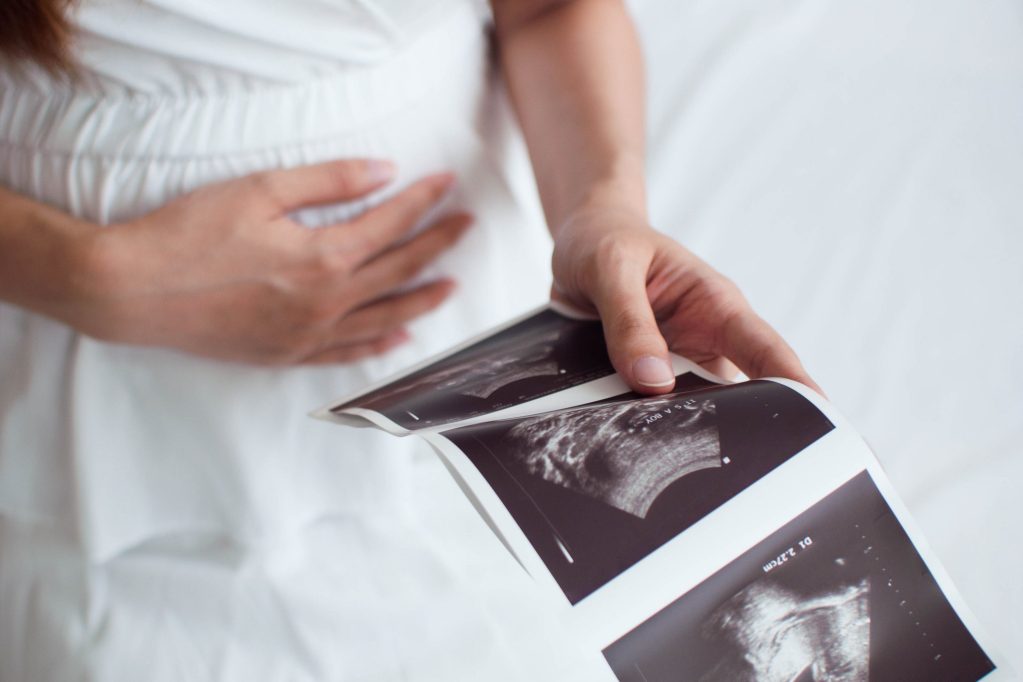
As we mentioned above, morning sickness, a healthier lifestyle, and typical weight fluctuations can cause first-trimester weight loss, but any sudden weight loss should be brought to the attention of your doctor. Very Well Family notes some other potential causes for weight loss during pregnancy, including:
- Autoimmune disorders
- Cancers
- Eating disorders
- Endocrine imbalance
- Gastrointestinal diseases
- Infections
- Neurologic abnormalities
- Psychiatric disorders
- Substance use
- Uncontrolled overactive thyroid
- Undiagnosed diabetes
- Other chronic diseases
“The most important intervention for a woman who is losing weight in pregnancy is to identify and treat the underlying reason for the inadequate weight gain,” explained Dr. Chris Han, a physician at the Center for Fetal Medicine and Women’s Ultrasound. While some weight loss early in the pregnancy is normal, Dr. Han also noted that “losing weight during pregnancy has been associated with increased risk of decreased birth weight and preterm delivery.”
What to do if you’re losing weight

If you’re struggling to gain the recommended weight during pregnancy, Peanut suggests you eat a balanced diet full of nutrient-rich foods while limiting sugary snacks. Stay hydrated by drinking enough water, reducing caffeinated beverages, and keeping active with light exercise.
How much weight should you gain during pregnancy?
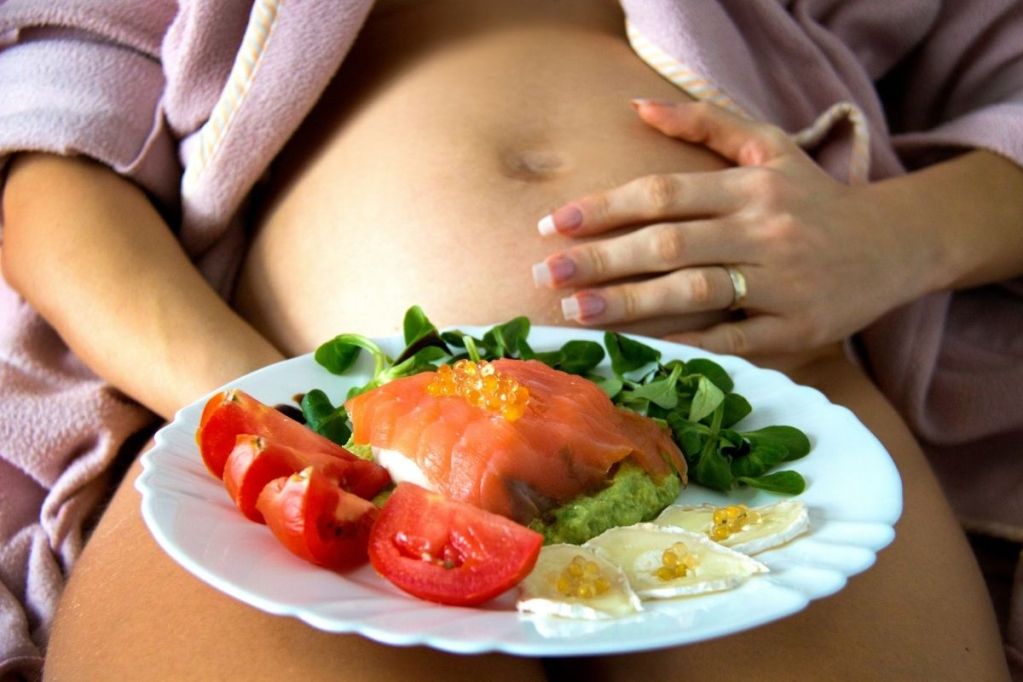
Every person is different, which is why knowing how much weight you should gain during pregnancy isn’t the same for everyone. The American College of Obstetricians and Gynecologists (ACOG) advises that most people will see the smallest weight gain in the first trimester, while individuals may gain anywhere between a half pound and a pound per week in the second and third trimesters. This is typical for those who are a healthy weight before getting pregnant.
For most, you don’t need any additional calories during the first trimester, which is why many will see weight loss, especially if they experience any morning sickness. In the second trimester, those who were a healthy weight before pregnancy will need approximately 340 extra calories a day, and the third trimester will require about an extra 450 calories a day.
Why healthy weight gain is important
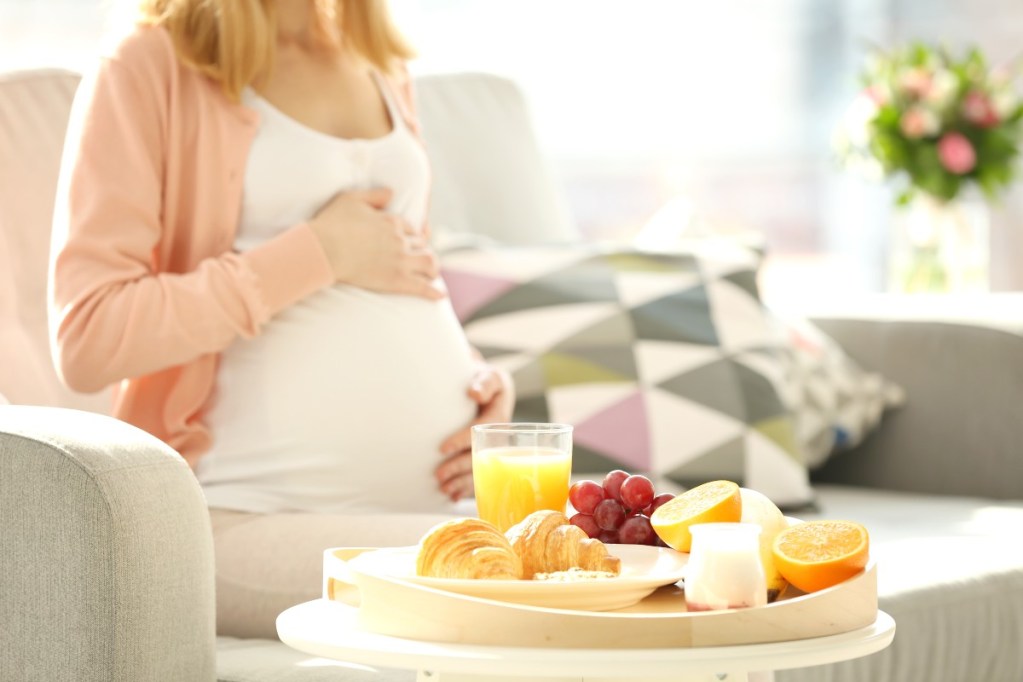
A healthy pregnancy is not only important for the health of the baby but for the expectant mother as well. Certain factors can impact a pregnant person’s weight gain or loss during pregnancy, but the ACOG’s guidance is to help give expectant mothers a guideline to follow for a healthy pregnancy.
For those who struggled with their weight before pregnancy, gaining more than the recommended amount during pregnancy can cause complications such as high blood pressure, preeclampsia, preterm labor, and gestational diabetes, according to Healthline. Losing too much weight during pregnancy can cause your baby to have a low birth weight. Focusing on your health by eating a balanced diet and doing moderate exercise can help ensure the health of both mother and baby.
Every woman’s pregnancy is different, but if you’ve noticed a drastic weight loss or are struggling to gain the recommended weight, contact your doctor for professional advice.


